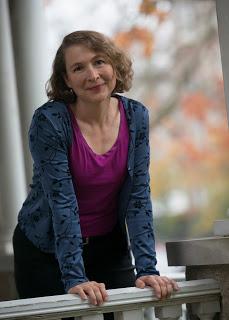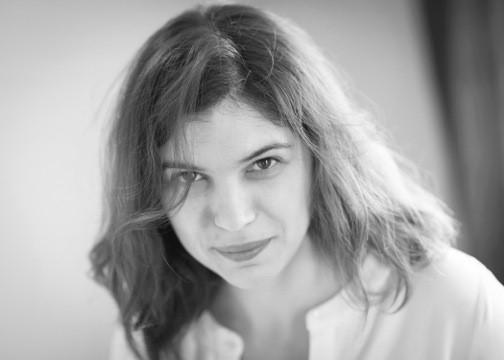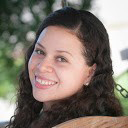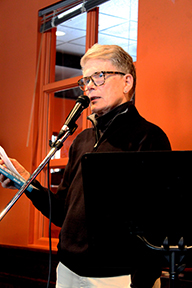
By Rachel Rose
Three writers: Birgül Oğuz, Karen Villeda, and Betsy Warland. Three different countries: Turkey, Mexico, Canada. Each writer grapples with gender and identity, with loss, with the limits of language, with persistence against the conspiracies of silence, with responding to violence as part of the quotidian, as part of civilian life. On the surface these writers appear to have little in common, and yet their answers, though written separately and thousands of miles apart, seem part of the same conversation.
Each of these writers works with what resists naming: how violence is gendered, how dislocation, loss and terrorism (and I include gender-related violence as a kind of terrorism) promotes silence, or at best, disengaged and simple art. These are writers who resist complicity, who engage with the public as well as the private the lyric and the experimental as well as the analytic and philosophical.
My questions to each of them about craft, identity as a writer, themes in writing and mentorship of other writers, provide the reader no more than the briefest of introductions. A writer like the Iowan-born Canadian Betsy Warland, who has mentored hundreds of writers (myself included) and is at the height of a prolific career, would seem to need no introduction. Yet precisely what makes her work innovative has perhaps been a factor in this lack of recognition by a literary community that prefers answers to questions, airbrushed perfection to the challenges of camouflage. Warland confronts this directly:
Narratives that provoke resistance.
To being read. At all.
Oscar wishes otherwise. Yet these are the narratives that seek her out.
Readers’ resistance: how to take them into account?
For writer has them too. (Oscar of Between, p. 20)
Mexican poet Karen Villeda is a writer of another generation, another linguistic tradition. Her work shares that keen sense of inquiry, of tracing language to its roots. As she writes in an interview for Iowa’s International Writing Program: “Sometimes I wonder about the gender of the sea. In Spanish, my beloved mother tongue, we think of the sea as an enchanting her — “la mar” — and we also fear the sea as an inclement he: “el mar.” The plural is masculine, too: “los mares.” It is an ambiguous substantive. I love neutral words, but when the subject matter is pain, the terms need to be accurate. When you are part of a complex demographic phenomenon like immigration to the United States, you are constantly questioning yourself about gender, sex, race, class — and, last but not least, the sea.” Villeda is also an award-winning children’s fiction and poetry writer; while she was in Iowa, she mentored Hispanic immigrant children; her writing shows her to be a fierce advocate of children’s rights, especially those children who have left Mexico and moved north, to the US, bringing the traumas of linguistic, social and geographic dislocation with them. Karen Villeda offers a compassionate response to these children, that both witnesses their traumas and offers a way to re-envision the journey: “Now I say to myself that it’s time to raise another question. Which is about the sea and its salt. Let’s talk about the children’s tears.”
Birgül Oğuz, winner of the European Union Prize for Literature, 2014, has recently had her first novel, Hah, translated into English. Oğuz is also a writer who resists the boundaries of genre in this novel-of-short-stories. In lyric, poetic prose, Hah investigates the grief of father-loss for a daughter whose own politics were critically shaped by those of the absent father, part of the 1968 generation of activism which swept the world, but which, in Turkey, was met with particularly fierce repression. For a contemporary writer like Oğuz, the hopes and losses of her father’s generation serve as a backdrop for current political affairs. In Hah, Birgül Oğuz, writes of the daughter’s pride in the father, which is also a political pride:
Hurry, Papa was saying, hurry.
The bellies of those filthy fascists were bursting with all the blood of the workers and peasants they’d swilled but day had broken and we knew the truth. I gobbled down a piece of bread slathered in jam. With a milk moustache, and joyful that we were going out, I strode into the street, head held high. My hand is a brown egg in Papa’s.
The father-loss is all at once of personal and political self; it is the loss of a generation’s hopes, as well as a critical part of the narrator’s inheritance and identity.
~ ~ ~

photo by Thomas Langdon
Birgül Oğuz has published two works of fiction, Fasulyenin Bildiği (2007) and Hah (2012); as she was finishing the interview, Istanbul was attacked.
1. Why do you write? Why did you start, and why do you persist? What did you have to overcome to call yourself a writer?
Writing is a movement towards silence: a movement to break the silence, to grab a flake of it and then throw it into language, make it speak. It is a space where you plunge yourself into with the hope and anxiety to understand and surpass and expand the limits of experience. Make what is unknown or silenced or forgotten, yours (or yours again). Only then life becomes alive. Only then you see life in growth. As roots crackling the pot. Growing towards new limits. That’s what we need to learn. Or know. Or speak out. Or remember. It sounds like a question of faith. Very much so. In short, I am writing to stay alive while I am living.
Writing is something that happens to you. It does not matter whether you are a writer or a reader. Writing is something that befalls you like an accident, like exuberance, like disaster. Do we have the will, the courage, the time to persist to stay at that state? I am sure we do and I am not sure. But that’s where we find ourselves. In writing. And that’s when something happens to writing. That’s when we become the agents of past and future through that geography which we call language.
There is a transition between language and silence, between experience and death, presence and absence. The only times I can call myself a writer is when language and silence passes through me, when I open myself as that transition space where things happen. So being a writer is a historical and geographical term for me. You are a writer only when you plunge yourself into that geography which we call language. There and then you erase and write and let it erase and write you.
2. What are your current preoccupations as a writer, linguistically, thematically, politically?
Yesterday three suicide bombers exploded themselves after shooting a lot of people at Istanbul Atatürk Airport. This is not the first, it will not be the last. For a long time now we are witnessing cities being demolished, civilians being executed, starved to death, burnt in the basements, shot in hundreds, washed ashore. Every place in the world has its own history of violence. And it is a long history, not peculiar to our times, certainly, but still certainly unique. And you always have your own portion as a single human being: you taste of it, you witness it, you carry it, you live through.
I know sense of humor is human and it is revolutionary. But there are times you feel bereft of some aspects of your humanity. Now I am occupied by anxiety, linguistically, thematically, politically. That’s why I cannot be preoccupied with anything linguistically, thematically, politically. But where would hope and courage without optimism could lead us to? I ask. And the growth of a cancerous tumor, the mutant, the notion of metastasis, the agency there, the malignant element and its movement to: where. I think. How to transform, make it benign, make it yours, through language and over the page. I attempt.
An excerpt from the story “Revol” in Hah by Birgül Oğuz
Translated from the Turkish by Mark Wyers and Abigail Bowman
How time slips past –hours, seasons- between my fingers, cold and slippery, falling from the wet counter top with a plop and the basin fills, only to be emptied by the bucketful, carried of and emptied into the grate, down into the nests of rats, piling up, piling up and slipping off their wet backs, churned to foam by the grinding of their teeth and clacking of their jaws, down into dark hollows and then deeper down into that pit where light congeals and thickens, and the darkness is terrifyingly blinding. How it flows; the greasy bulbs swing, plastic bags rustle. I fix my eyes on the wet counter top and think. I think about seeing eyes that know nothing of death. With my own eyes I see the eyes of the dead as they lie here glaring, their gaze fixed on the pit: their gaze is snared like a fish-hook on the soft belly of that hollow. They gaze not toward a distant destination but at the ruins of a time that toppled down long ago. They don’t blink. They have no will to blink. They have no courage. They have no time. There is no time for them, none.
At this point, the fish about to be emptied of their insides are piled up in the basin to my right. The cash register is shoved closed with a thud. Meathead eyes my cleavage wolfishly. I say that he too has eyes, for years he’s had eyes, he has them too. In the split of my mind a long sentence switches tracks, shuffling off the present tense and toppling down into a time that is frozen in place. My knife shrinks, withers and droops. A hand burns in my palm. Bloody water drips from my pinky finger. I say: Bon appétit.
From “Devr” in Hah
Nasıl da akar zaman, saatler mevsimler, parmaklarımın arasından soğuk ve kaygan, ıslak tezgâhtan tıp şıp diye, leğenlerde birikip kovalarda taşınarak, dökülerek mazgallardan aşağı, aşağı, yurduna sıçanların, sıçanların ıslak sırtına binip binip inip, diş gıcırtılarına çene tıkırtılarına karışıp köpürerek, aşağı, kara kovuklardan çokça aşağı, ışığın pelteleştiği, ışığın katılaştığı, karanlığın korkunç kamaştığı o çukura. Nasıl da akar, yağlı ampuller sallanır, poşetler hışırdar. Islak tezgâhıma gözlerimi yaslar da düşünürüm. Hiç ölünmemiş denli diri gözler düşünürüm. Yattıkları yerden yan yan bakan merhumların buradan ta o çukura dikilmiş gözlerini gözümle görürüm: Bakışları olta iğnesi gibi saplanmış o çukurun yumuşak karnına. Bir menzile değil, çoktan devrilmiş bir zamanın enkazına bakıyorlar. Gözlerini kırpmıyorlar. Gözlerini kırpmaya tahammülü yok onların. Cesareti yok. Vakti yok. Onlarda vakit ne gezer, yok.
Bu arada sağ yanımdaki leğende çoktan birikmiştir içleri boşaltılmaya balık. Yazarkasa hırç diye kapanır. Etkafa’nın gözü sulu sulu bakar boynuma. Derim onun gözü var, onun da var gözleri yıllardır, onun da. Aklımın çatalında makas değiştirir upuzun bir cümle, geniş zamandan geçer, mıhlanılmış zaman devrilir. Bıçağım küçülür, pörsür, sarkar. Elimin içinde bir el yanar. Serçeparmağımdan kanlı su damlar. Derim afiyet olsun.
~ ~ ~

photo by Thomas Langdon
Karen Villeda’s collections of poetry include Tesauro (2010), Babia (2011), Dodo (2013), and Constantinopla (2014).
1. Why do you write? Why did you start, and why do you persist? What did you have to overcome to call yourself a writer?
I write to explain myself and the world perceived as/by my own self. An inner world, of course. I started to write when I was a little kid. I confess that I had problems learning to read and write. My mom taught me. Then, I devoured books (most of them, classics of my grandparents’ library). I had my first diary at age of 9. It was an “Italian style” notebook (nothing that fancy as you can appreciate in the following pic:

The first book that I read was a collection of short stories by Edgar Allan Poe and at 9 I tried to write a story similar to “The Black Cat”, which I read and re-read. I failed, of course. So I adopted a Samuel Beckett quote as a personal hymn: “Ever tried. Ever failed. No matter. Try Again. Fail again. Fail better.” I guess I just wanted to scare someone as Allan Poe scared the hell out me.
2. What are your current preoccupations as a writer, linguistically, thematically, politically?
I am obsessed with violence. Linguistic violence as a form of exclusion. I think of a system of communication based in prejudices and stereotypes. Also political violence as a way of living in Mexico. Of course, I write mostly about symbolic violence (mostly in close human relationships: love and friendship). I am interested too in gender equality and I am making my best effort to make strong female characters (in my narrative) and poetic voices.
3. Tell us about how you have mentored other writers, and about the importance of a vibrant literary community.
At the age of 16 I was attending a literary workshop (that are common in Mexico for writers’ formation) and I published my first poem in the local newspaper. My first book of poetry came when I was 18 years old. All of these was possible because of my first mentor. Mexico has an enormous amount of grants and prizes that allow us to be mentored while we are young (under 35 years old). I have not had the opportunity to mentor other writers, although I have given a literacy workshop for children.
~ ~ ~

Betsy Warland has published 12 books of poetry, creative nonfiction, and lyric prose including her best-selling 2010 book of essays on writing, Breathing the Page — Reading the Act of Writing. In 2013, Warland created a new publishing template: an interactive salon that features excerpts from her manuscript Oscar of Between, Guest Writers and Artist’s work and Featured Readers’ comments. In April of 2016, Oscar of Between — A Memoir of Identity and Ideas launched Caitlin Press’ new imprint, Dagger Editions. Warland has been teaching creative writing workshops and courses for the past 35 years. She initiated and coordinated Women and Words / Les femmes et le mots conference (Vancouver 1983) of 1,000 women from across Canada involved in all aspects of contemporary literature. Warland co-founded the national Creative Writer Nonfiction Collective in 2004. Designer and director of The Writer’s Studio at Simon Fraser from 2001-2012 and TWS Mentor in 2001-2003, 2005, she remains on TWS teaching faculty. While on the National Council of The Writers’ Union of Canada, Warland chaired The Writers’ Union AGM in Vancouver in 2012. In 2007, she founded the six-month international Vancouver Manuscript Intensive program she is the director of and a mentor in. A professional manuscript consultant/editor for the past 25 years, Warland works with writers from across Canada.
1. Why do you write? Why did you start, and why do you persist? What did you have to overcome to call yourself a writer?
To use the ubiquitous Dickenson quote that seems to maintain its potency, I’ve seen life “at a slant” since childhood; knew that the homogenization of public and private narratives was not only deficient but dangerous. Specific experiences provoked me. I was placed in an out-of-control school in grade three and forgot how to read so drew instead and had to relearn how to read before going into grade four which made me see the act of reading differently. A second factor was that I grew up in a rural community in which the majority of people came from Norway two generations prior. Although everyone spoke English I didn’t realize until my first book was being edited that I related to English as a second language even though I knew very little Norwegian. In addition, many significant family stories were silenced so various forms of silence became a profound backstory for me. Consequently, as a writer I am as interested in what is left out, gestured at in the writing as much as what is on the page. I’m not at all certain that I would have survived, let alone thrived, if I hadn’t become a writer.
Recently I’ve been saying that being a writer is a perverse profession! Recent changes are resulting in it costing a lot more to be a writer: tuition to writing programs and workshops, hiring a mentor and editor to finish the manuscript pre-submission to publishers, having a strong online presence, then assisting the publisher with a lot of the PR once the book is out. The other factor that has not changed, no matter how many books you’ve written, is it’s always far harder to write and takes much longer to finish a manuscript then we think! It’s the hardest work I know. But, it’s the most fascinating work I know. Writing is my spiritual teacher. The act of writing, and my process of mentoring other writers, exposes me to what really matters (which is everything).
I began writing in grade nine and have always been comfortable calling myself a writer. Persist is a key word! Because writing is such a daily activity like making breakfast (as contrasted to working in bronze in a sculpture studio) it is highly susceptible to interruption and distraction: everything conspires against the focused concentration that the act of writing requires. Also, for a variety of reasons, support, inclusion and affirmation from the writing community have often been sparse for me and I’ve needed to find a great deal of persistence within myself.
2. What are your current preoccupations as a writer, linguistically, thematically, politically?
My nine-year writing project, Oscar of Between — A Memoir of Identity and Ideas just came out and I am still very much immersed in the concerns of this narrative. I began when I stepped into the invention of military camouflage exhibit in London, UK in 2007. Suddenly I understood a difference within myself that I never had had words for: I’d never been taught the essential social skill of camouflage. Compounding this is the fact that I never know what gender I will be perceived as in public. Camouflage has become profoundly entrenched in civilian life: “Membership is how it works. Automatic positioning. What to expect. Who to trust. And not” (Oscar of Between). Pervasive deception has lead to ever increasing civilian violence of all kinds.
What liberated me to write this narrative was discovering a narrative position that finally fit for me: a person of between who through the course of the story begins to recognize and feel a bond with all kinds of other persons of between. Gender seems to be the primary category of training for everyone around the world. This primary training becomes the prototype or basis for other categorizing such as race, class, religion, sexual identity, country, cultural practices which become the source of fear and hatred.
The Oscar of Between narrative and form explore how this state of consciousness moves in a fragmented, associative, dis-associative, encoded and incremental fashion both publically and privately. Have a look.
3. Tell us about how you have mentored other writers, and about the importance of a vibrant literary community.
It’s always been a deep instinct in me to support other writers, particularly emerging writers. I know how hard it is to not receive enough support. From the very beginning of my writing life in 1970s in Toronto, I initiated the Toronto Women’s Writing Collective and Writers in Dialogue (paring feminist authors from the USA and Canada such as Adrianne Rich and Nicole Brossard). More recently, I designed and directed The Writer’s Studio at S.F.U. and Vancouver Manuscript Intensive Program.
Over the decades, I’ve created and helped create ten alternative options that are more inclusive (local and national writers’ organizations, anthologies and journals, conferences and large events, schools) for writers who for various reasons don’t socially fit (racially, sexual orientation, physical disabilities), qualify (due to education or financial resources), or are artistically different (due to cultural backgrounds, first language sensibilities that aren’t English, and/or experimental writing quests). Working one-on-one with writers on their manuscript is also a primary part of my life that means a great deal to me. My 2010 book of personal essays, Breathing the Page — Reading the Act of Writing, was inspired by decades of working with writers. Looking back, now I see that it’s been essential to create alternatives not only for other writers but also for myself.
~ ~ ~
Rachel Rose has won poetry, fiction, and non-fiction awards, including a 2016 Pushcart Prize. Recently a fellow at The University of Iowa’s International Writing Program, she is the Poet Laureate of Vancouver. A chapbook, Thirteen Ways of Looking at CanLit, (BookThug) and a poetry collection, Marry & Burn (Harbour) were published in 2015. Her non-fiction book, Gone to the Dogs: Riding Shotgun with K9 Cops, is forthcoming from St. Martin’s Press/Thomas Dunne Books. Visit her website.











Add new comment